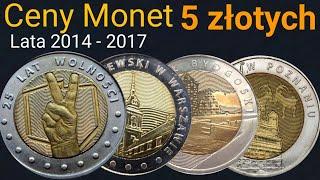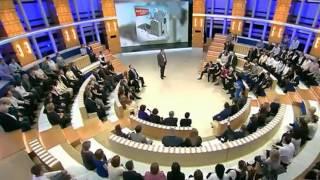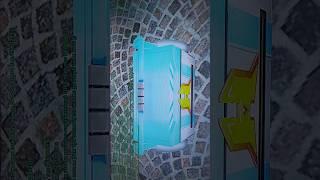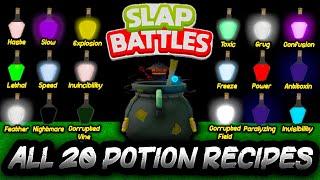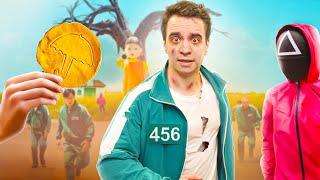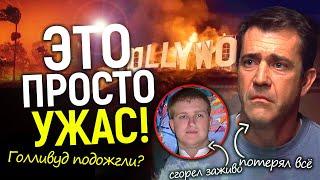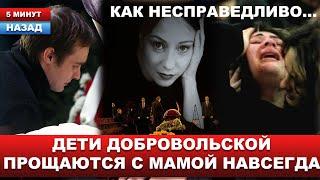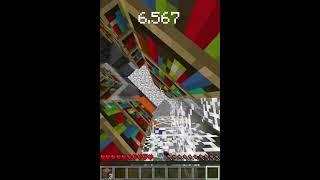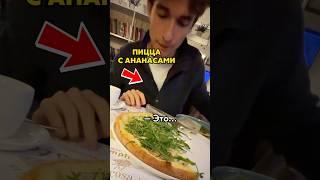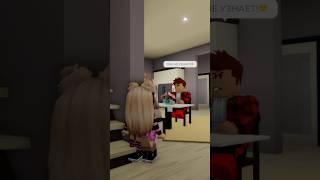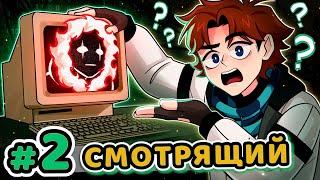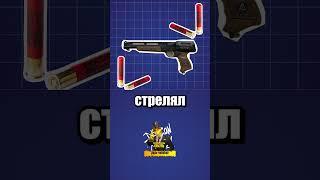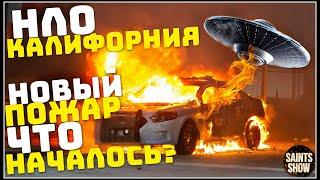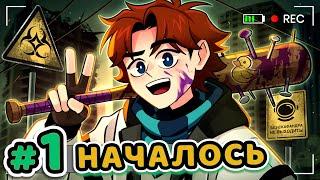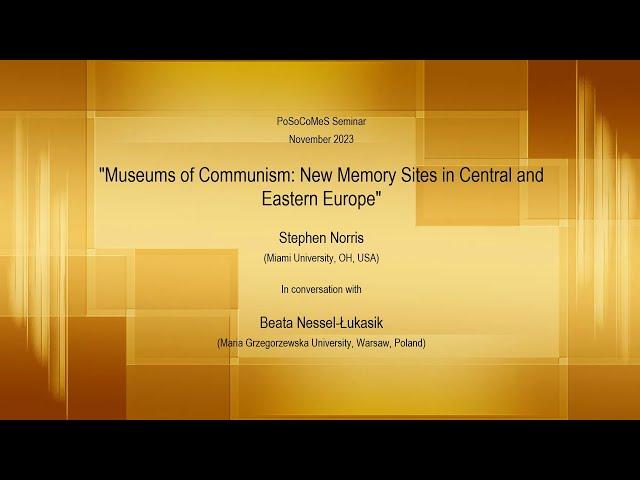
PoSoCoMeS Seminar #17 : Museums of Communism: New Memory Sites in Central and Eastern Europe
At the monthly PoSoCoMeS seminar, Beata Nessel-Łukasik discusses the complicated intersection of history, commemoration, and victimization in museums constructed after 1991 in former communist countries that deal with their communist experience, with Stephen Norris, the editor of the book under discussion: "Museums of Communism: New Memory Sites in Central and Eastern Europe".
About the book:
How did communities come to terms with the collapse of communism? In order to guide the wider narrative, many former communist countries constructed museums dedicated to chronicling their experiences. Museums of Communism explores the complicated intersection of history, commemoration, and victimization made evident in these museums constructed after 1991. While contributors from a diverse range of fields explore various museums and include nearly 90 photographs, a common denominator emerges: rather than focusing on artifacts and historical documents, these museums often privilege memories and stories. In doing so, the museums shift attention from experiences of guilt or collaboration to narratives of shared victimization under communist rule.
Stephen Norris is the Walter E. Havighurst Professor of Russian History and Director of the Havighurst Center for Russian and Post-Soviet Studies at Miami University (OH). He is the author of three books, including Blockbuster History in the New Russia: Movies, Memory, Patriotism, and the editor or co-editor of six other books, including Museums of Communism: New Memory Sites in Central and Eastern Europe. He is currently writing a biography of the Soviet political caricaturist Boris Efimov (1900-2008) entitled Communism's Cartoonist: The Extraordinary Lives and Deaths of Boris Efimov.
Beata Nessel-Łukasik is an art historian, sociologist, who graduated PhD of the Institute of Philosophy and Sociology, Polish Academy of Sciences and now works at the Maria Grzegorzewska University in Warsaw. Her work focuses on the impact of social changes on contemporary museums and various groups of audiences. As a museologist she was associated with the Warsaw National Museum (1998-2010) and Józef Piłsudski Museum in Sulejówek (2011-2020), where she created the first Local Programs Department in Poland and as co-author Sulejówek Social Archives (www.sulejowekpossasiedzku.pl) and “The relational museum. On the threshold / beyond threshold” (“Museology. New Places” 2020). She also edited two other volumes: as author an interdisciplinary monograph "Memory Coalitions” (The Program “Excellent learning – Monograph 2022-2023”) and as co-author “Audiences (in) museum” (The National Institute of Museums 2022). Currently, she is focused on the impact of polycrises on museums in Poland (scholarship holder of the Ministry of Culture and National Heritage 2023). She is an ICOM member, member of “Museology” editorial team and of the artistic and research Telos Group.
About the book:
How did communities come to terms with the collapse of communism? In order to guide the wider narrative, many former communist countries constructed museums dedicated to chronicling their experiences. Museums of Communism explores the complicated intersection of history, commemoration, and victimization made evident in these museums constructed after 1991. While contributors from a diverse range of fields explore various museums and include nearly 90 photographs, a common denominator emerges: rather than focusing on artifacts and historical documents, these museums often privilege memories and stories. In doing so, the museums shift attention from experiences of guilt or collaboration to narratives of shared victimization under communist rule.
Stephen Norris is the Walter E. Havighurst Professor of Russian History and Director of the Havighurst Center for Russian and Post-Soviet Studies at Miami University (OH). He is the author of three books, including Blockbuster History in the New Russia: Movies, Memory, Patriotism, and the editor or co-editor of six other books, including Museums of Communism: New Memory Sites in Central and Eastern Europe. He is currently writing a biography of the Soviet political caricaturist Boris Efimov (1900-2008) entitled Communism's Cartoonist: The Extraordinary Lives and Deaths of Boris Efimov.
Beata Nessel-Łukasik is an art historian, sociologist, who graduated PhD of the Institute of Philosophy and Sociology, Polish Academy of Sciences and now works at the Maria Grzegorzewska University in Warsaw. Her work focuses on the impact of social changes on contemporary museums and various groups of audiences. As a museologist she was associated with the Warsaw National Museum (1998-2010) and Józef Piłsudski Museum in Sulejówek (2011-2020), where she created the first Local Programs Department in Poland and as co-author Sulejówek Social Archives (www.sulejowekpossasiedzku.pl) and “The relational museum. On the threshold / beyond threshold” (“Museology. New Places” 2020). She also edited two other volumes: as author an interdisciplinary monograph "Memory Coalitions” (The Program “Excellent learning – Monograph 2022-2023”) and as co-author “Audiences (in) museum” (The National Institute of Museums 2022). Currently, she is focused on the impact of polycrises on museums in Poland (scholarship holder of the Ministry of Culture and National Heritage 2023). She is an ICOM member, member of “Museology” editorial team and of the artistic and research Telos Group.
Комментарии:
Легенды и мифы дачных участков. Выпуск 11
Загородный
skibidi toilet 6 dublado @DaFuqBoom #skibidibopyesyesyes
Engenho IlimitadoTV
Creating Contextual Toolbars in REAPER 5
James Zhan
ЖКХ - КАК НАС ВСЕХ ОБМАНЫВАЮТ!!!
CANDAGAR ВЛАД
Вот и кейс
MrGlobusOk





